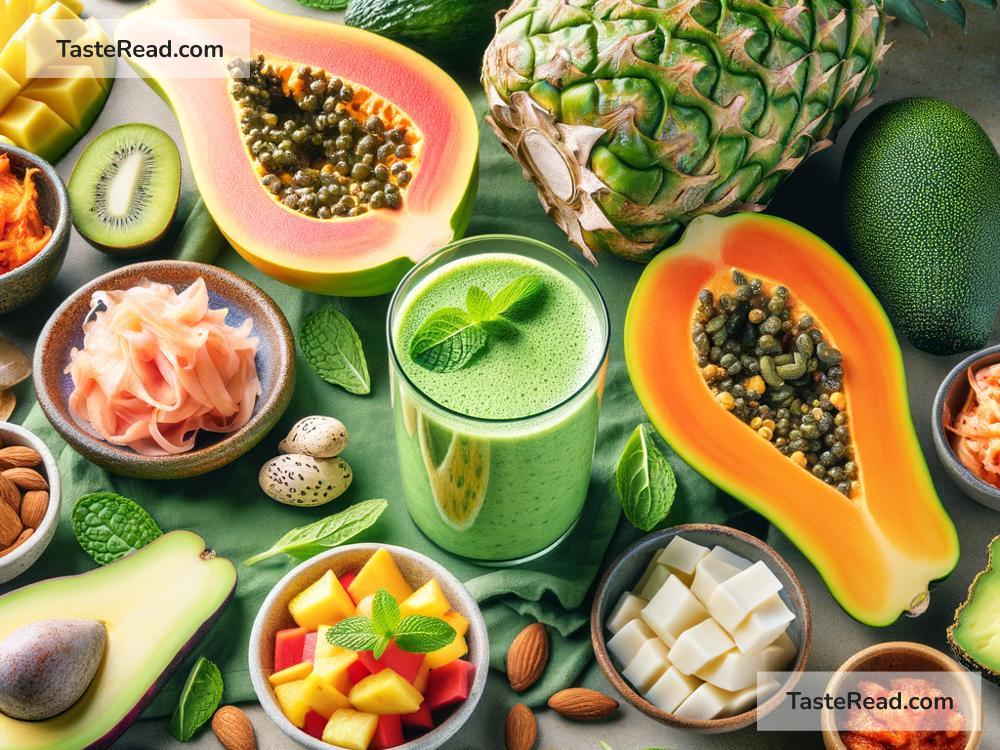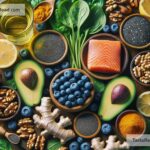Boost Your Body’s Enzyme Power with These Simple Foods
Your body is like a magnificent machine, working tirelessly to keep you healthy every day. One essential component of this machine is enzymes—tiny proteins that act as helpers for important tasks like digestion, metabolism, and energy production. Without enzymes, your body would struggle to break down food, absorb nutrients, and maintain essential functions. Luckily, the right foods can enhance enzyme activity and keep your body running smoothly. In this article, we’ll explore easy-to-find foods that support your enzyme function.
What Are Enzymes and Why Do They Matter?
Before diving into the foods, let’s take a moment to understand enzymes. Enzymes are biological catalysts that speed up chemical reactions in the body. For example, digestive enzymes, such as amylase, lipase, and protease, help break down carbohydrates, fats, and proteins, respectively. This ensures your body absorbs nutrients efficiently and converts them into energy.
However, certain factors, like processed food diets, age, or stress, can slow enzyme activity, potentially leading to poor digestion, low energy levels, or nutrient deficiencies. Fortunately, eating enzyme-rich or enzyme-supporting foods can help maintain balance and even boost enzyme function.
Foods That Naturally Enhance Enzyme Function
Nature provides us with a treasure trove of foods to support enzyme activity. Here are some easy-to-incorporate options:
1. Pineapple (Rich in Bromelain)
Pineapple is not just a delicious tropical fruit—it’s packed with bromelain, a group of enzymes that helps break down proteins. Bromelain can aid in digestion, reduce inflammation, and even improve nutrient absorption. Eating fresh pineapple or enjoying it in smoothies can give your body a natural boost.
2. Papaya (Loaded with Papain)
Papaya contains papain, a powerful enzyme known for its protein-digesting abilities. Whether you eat it fresh, blend it into juices, or use it in recipes, papaya helps your digestive system work better. Papain is also popular for soothing upset stomachs and supporting skin health.
3. Bananas (Promoters of Amylase and Maltase)
Bananas contain natural enzymes like amylase and maltase, which help break down carbohydrates and turn them into usable energy. They’re also an excellent source of potassium and fiber, making them a great addition to your diet.
4. Avocado (Supports Lipase Activity)
Avocado is known for its healthy fats, but it also promotes the function of lipase, an enzyme responsible for breaking down fats. Adding avocado to your salads, sandwiches, or smoothies can help your body digest fats more efficiently.
5. Fermented Foods (Rich in Probiotics and Enzymes)
Foods like yogurt, kefir, sauerkraut, kimchi, and miso are rich in probiotics and enzymes that support digestion and overall gut health. Probiotics introduce beneficial bacteria to your digestive system, helping your body create and activate its own enzymes.
6. Sprouted Seeds and Grains
Sprouting seeds and grains, such as sunflower seeds, lentils, or quinoa, naturally boosts enzyme activity. Sprouting makes it easier for your body to digest and absorb nutrients. Enjoy sprouted options in salads, smoothies, or as crunchy snacks.
7. Raw Honey (Nature’s Enzyme Treasure)
Raw honey is a natural source of enzymes like amylase (for breaking down carbohydrates) and diastase (for converting starch into sugar). Eating raw honey in moderation can support digestion and provide quick energy, but avoid overheating it, as heat can destroy its valuable enzymes.
8. Ginger (Supports Digestion)
Ginger not only helps with nausea but also stimulates enzyme production for digestion. It promotes healthy bile production, which improves fat digestion. Drink ginger tea or add it to soups and stir-fries to enjoy its benefits.
9. Apple Cider Vinegar (Helps Activate Enzymes)
Apple cider vinegar, especially when unfiltered and raw, contains enzymes and improves digestive enzyme activity in your stomach. Adding a tablespoon to water as a daily drink can help create a healthier environment for nutrient breakdown and absorption.
10. Organic Raw Vegetables (Rich in Natural Enzymes)
Raw vegetables, such as carrots, cucumbers, and spinach, contain natural enzymes that assist digestion. Cooking certain vegetables at high heat may destroy their enzymes, so enjoy them raw in salads, snacks, or smoothies whenever possible.
Lifestyle Tips to Support Enzyme Health
While eating enzyme-rich foods can help, your lifestyle choices also play a role in enzyme function. Here are some easy tips:
- Chew Your Food Well: Chewing lets enzymes in your saliva start breaking down food early.
- Stay Hydrated: Water supports enzyme activity, especially in digestion.
- Avoid Overprocessed Foods: These can reduce your body’s natural enzyme production.
- Manage Stress: Chronic stress can negatively impact enzyme function. Take time to relax and recharge.
Conclusion
Your body’s enzymes play a vital role in keeping you healthy, and you can support them with foods that are readily available and packed with natural goodness. Pineapple, papaya, bananas, avocado, fermented foods, and raw honey are just a few examples of enzyme-boosting options. Pairing these foods with a balanced lifestyle can help your body stay strong, energized, and well-functioning.
The next time you plan your meals, focus on adding enzyme-friendly foods. Not only will they make your taste buds happy, but they’ll also help your body work more efficiently from the inside out. Healthy eating doesn’t have to be complicated—sometimes, it’s as simple as enjoying nature’s gifts!


